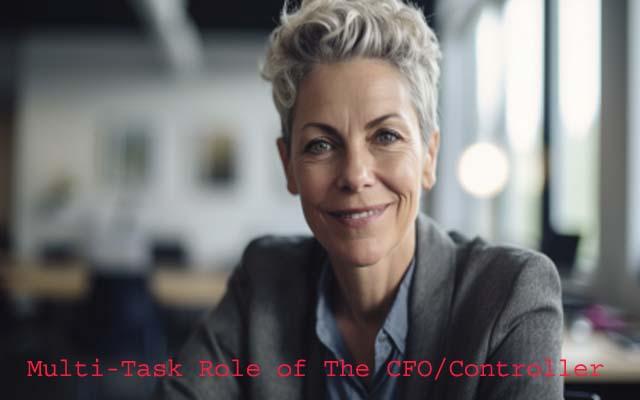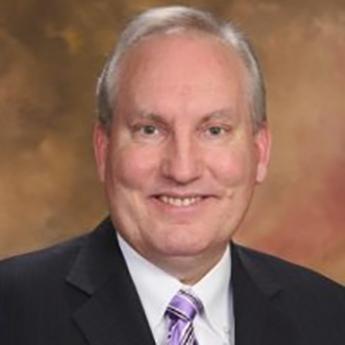
Human Resources
Multi-Task Role Of The CFO/Controller
CWS2025308
100 Minutes
Oct 10,2025 - Nov 30,2025
Overview
This webinar highlights the critical role of the CFO/Controller, focusing on the multi-tasking and multi-functional skills required to excel in today’s dynamic business environment. Attendees will explore how effective time management, negotiation skills, and personal planning can help financial leaders achieve personal “economies of scale” that increase efficiency and effectiveness in their roles.
In addition to core financial responsibilities, participants will gain insights into management strategies, banking and finance, business law, risk management, and human resource challenges. The program will also emphasize the importance of the CFO/Controller as an “internal” team trainer, responsible for strengthening organizational knowledge and performance. Real-life scenarios will be integrated throughout to bring these concepts to life and provide practical, applicable examples.
Your Benefits For Attending :
- Understand how the CFO/Controller must function in a multi-task, multi-functional environment
- Learn strategies to achieve personal “economies of scale” through time management, negotiation skills, and personal planning
- Explore management techniques, banking & finance, business law, risk management, and human resource issues essential to the CFO/Controller role
- Gain insights on serving as an effective “internal” team trainer to enhance team performance and organizational success
- Apply real-life case scenarios that demonstrate practical applications of these skills and strategies
By attending this webinar, you will sharpen the leadership, management, and technical skills needed to thrive in a demanding financial leadership role, while also gaining actionable tools to improve both personal effectiveness and team performance.
Who Should Attend :
CPAs, CFOs/Controllers, department managers, and staff accountants responsible for managing teams and providing accounting, tax, or consulting services to businesses.
table of Contents
- Introduction
- Objectives
- Multi-Tasking - Multi-Functional Approach
- Multi-Tasking - Multi-Functional Approach - Sound
- Multi-Tasking - Multi-Functional Approach - Roadblocks
- Multi-Tasking - What If Scenarios
- Multi-Tasking Applied
- Multi-Tasking Through Gaining “Personal” Economies of Scale
- Multi-Tasking Through Gaining “Personal” Economies of Scale Cont’d
- Exhibit #1: Time Wasters (Stealers)
- Exhibit #1: Time Wasters (Stealers) (Cont’d)
- Multi-Tasking Through Gaining “Personal” Economies of Scale Cont’d
- Multi-Tasking Through Gaining “Personal” Economies of Scale Cont’d
- Multi-Tasking Through Gaining “Personal” Economies of Scale Cont’d
- Multi-Tasking Through Gaining “Personal” Economies of Scale Cont’d
- Exhibit #2: Project Management Techniques
- Multi-Tasking - What If Scenarios
- Multi-Tasking Applied
- Multi-Tasking and Management Skills and Techniques
- Multi-Tasking and Management Skills and Techniques (Cont’d)
- Multi-Tasking - What If Scenarios
- Multi-Tasking Applied
- Multi-Tasking and Banking and Finance
- Multi-Tasking and Banking and Finance (Cont’d)
- Multi-Tasking and Banking and Finance (Cont’d)
- Multi-Tasking and Business Law - Components of a “Contract”
- Multi-Tasking and Business Law - Contract Negotiations
- Multi-Tasking and Risk Management
- Multi-Tasking - What If Scenarios
- Multi-Tasking Applied
- Multi-Tasking and Human Resource Issues - Personality Types
- Multi-Tasking and Human Resource Issues - Human Behavior
- Multi-Tasking and Human Resource Issues - Organizational Dynamics
- Multi-Tasking and Human Resource Issues - Group Dynamics
- Multi-Tasking - What If Scenarios
- Multi-Tasking Applied
- Multi-Tasking and the Role of the CFO/Controller as an “Internal” Team Trainer
- Multi-Tasking and the Role of the CFO/Controller as an “Internal” Team Trainer (Cont’d)
- Rules for Effective Multi-Tasking
- Presentation Closing
Index
- Asset-Based Lending (ABL)
- Bank Secrecy Act (BSA)
- Bridge Loan
- Cash flow (CF)
- Chief Financial Officer (CFO)
- Community Reinvestment Act (CRA)
- Contract
- Controller
- Demand Deposit Account (DDA)
- Family Medical Leave Act
- Lender Liability
- Multi-Tasking
- Project Management
- Risk Management
- Theory X
- Theory Y
- Theory Z
- Zero Balance Account (ZBA)
Key terms
Asset-Based Lending (ABL): Asset-based lending is the business of loaning money in an agreement that is secured by collateral. An asset-based loan or line of credit may be secured by inventory, accounts receivable, equipment, or other property owned by the borrower.
Bank Secrecy Act (BSA): The Bank Secrecy Act (BSA) is U.S. legislation aimed toward preventing criminals from using financial institutions to hide or launder money. The law requires financial institutions to provide documentation to regulators whenever their clients deal with suspicious cash transactions involving sums over $10,000.
Bridge Loan: A “bridge loan” is essentially a short term loan taken out by a borrower against their current property to finance the purchase of a new property. Also known as a swing loan, gap financing, or interim financing, a bridge loan is typically good for a six month period, but can extend up to 12 months.
Cash Flow (CF): The revenue or expense expected to be generated through business activities (sales, manufacturing, etc.) over a period of time.
Chief Financial Officer (CFO): The chief financial officer is the officer of a company that has primary responsibility for managing the company's finances, including financial planning, management of financial risks, record-keeping, and financial reporting. In some sectors, the CFO is also responsible for the analysis of data.
Community Reinvestment Act (CRA): The Community Reinvestment Act (CRA) is a law intended to encourage depository institutions to help meet the credit needs of the communities in which they operate, including low- and moderate-income (LMI) neighborhoods, consistent with safe and sound banking operations.
Contract: A written or spoken agreement, especially one concerning employment, sales, or tenancy, that is intended to be enforceable by law.
Controller: A controller is an individual who has responsibility for all accounting-related activities, including high-level accounting, managerial accounting, and finance activities, within a company. A financial controller typically reports to a firm's chief financial officer (CFO), although these two positions may be combined in smaller businesses. The duties of a controller include assisting with the preparation of the operating budgets, overseeing financial reporting, and performing essential duties relating to payroll.
Demand Deposit Account (DDA): A demand deposit account (DDA) consists of funds held in a bank account from which deposited funds can be withdrawn at any time, such as checking accounts. DDA accounts can pay interest on a deposit into the accounts but aren’t required. A DDA allows funds to be accessed anytime, while a term deposit account restricts access for a predetermined time.
FMLA - Family and Medical Leave Act: The Family and Medical Leave Act of 1993 is a United States labor law requiring covered employers to provide employees with job-protected and unpaid leave for qualified medical and family reasons.
Lender Liability: Lender liability refers to a body of case law where a lender is found liable for losses sustained by a borrower or a third party that directly or indirectly flows from the lender's actions in connection with a loan.
Multi-Tasking: The performance of multiple tasks at one time
Project Management: is the application of processes, methods, skills, knowledge and experience to achieve specific project objectives according to the project acceptance criteria within agreed parameters.
Risk Management: is the process of identifying, understanding, and grading risks so they can be better managed and mitigated.
Theory X: Theory X assumes that employees are lazy, unmotivated, and will do anything to avoid working.
Theory Y : Theory Y assumes that employees are happy to work and will take on additional duties without being forced to.
Theory Z: Theory Z is a name for various theories of human motivation built on Douglas McGregor's Theory X and Theory Y. When Theory Z is applied, managers and other employees share responsibilities, management is participative, and employment is long term.
Zero Balance Account (ZBA): A zero balance account (ZBA) is pretty much exactly what it sounds like: a checking account in which a balance of zero is maintained. When funds are needed in the ZBA, the exact amount of money required is automatically transferred from a central or master account.
David L. Osburn
David is the founder and managing member of David L. Osburn & Associates LLC, a Las Vegas-based business training and contract CFO firm that provides seminar/keynote speeches for various groups including CPAs, bankers, attorneys, credit union employees, credit managers, trade groups, and business owners. He also serves as a contract CFO for several clients including construction companies, medical practitioners, and real estate developers, co-manages a bank educational program with the University of Nevada Las Vegas, and is a board member of North Star Business Services, a commercial lending company (commercial real estate and equipment financing).
His extensive professional background encompasses over 24 years in banking, finance, and marketing. His bank commercial lending credentials include comprehensive loan underwriting, management, customer development, and loan work-out experience.
In addition, David is an Adjunct Professor for Regis University, an accredited MBA program and the College of Southern Nevada, a community college. He has taught college courses for over 22 years, covering Finance, Accounting, Economics, Marketing, Banking, Business Law, and Management.
He earned an MBA in Finance/Marketing from Utah State University and a BS in Finance from Brigham Young University. He is also a graduate of the University of Oklahoma National Commercial Lending School.
